Affordable housing trailblazer returns to services she helped create

COLORADO SPRINGS, Colo – When Claudia Deats-Rodgers founded Greccio Housing in 1990 to help solve affordable living issues in Colorado Springs, she never imagined she’d someday utilize the services she so passionately helped create.
“I had no idea,” she said.
In the early 1980s, Rodgers, a Franciscan nun, was called on by the the Archdiocese of Denver to help the new Diocese of Colorado Springs undertake housing projects. Rodgers had previously run a program to help settle Vietnamese refugees.
“That was my first experience of seeing people needing housing, and seeing people coming from circumstances which they didn’t control, but whose lives were really cut down and wanting to be rebuilt,” she said.
In partnership with the Diocese, Rodgers began developing housing units for seniors and low-income community members.
“We started looking at what we could do to get more housing going in Colorado Springs,” she said. “Because that was a great need — and that was 30 years ago.”
Eventually, after 31 years, Rodgers left the order to begin Greccio, concentrating her life’s work on resourcing individuals and families with affordable housing.
Greccio’s early housing units focused on welcoming men and women leaving shelters, women leaving domestic violence situations, and unhoused teenagers, Rodgers said.
Community-building support services that foster autonomy, like community gardens and literacy programs, are at the core of the housing program. Greccio’s Resident Resource Center, featuring classes, events, and emergency services, was officially launched in 2002.
“The purpose of Greccio was, and is, to set people free,” Rodgers said. “We create community with our residents, who so often don’t have family support.”
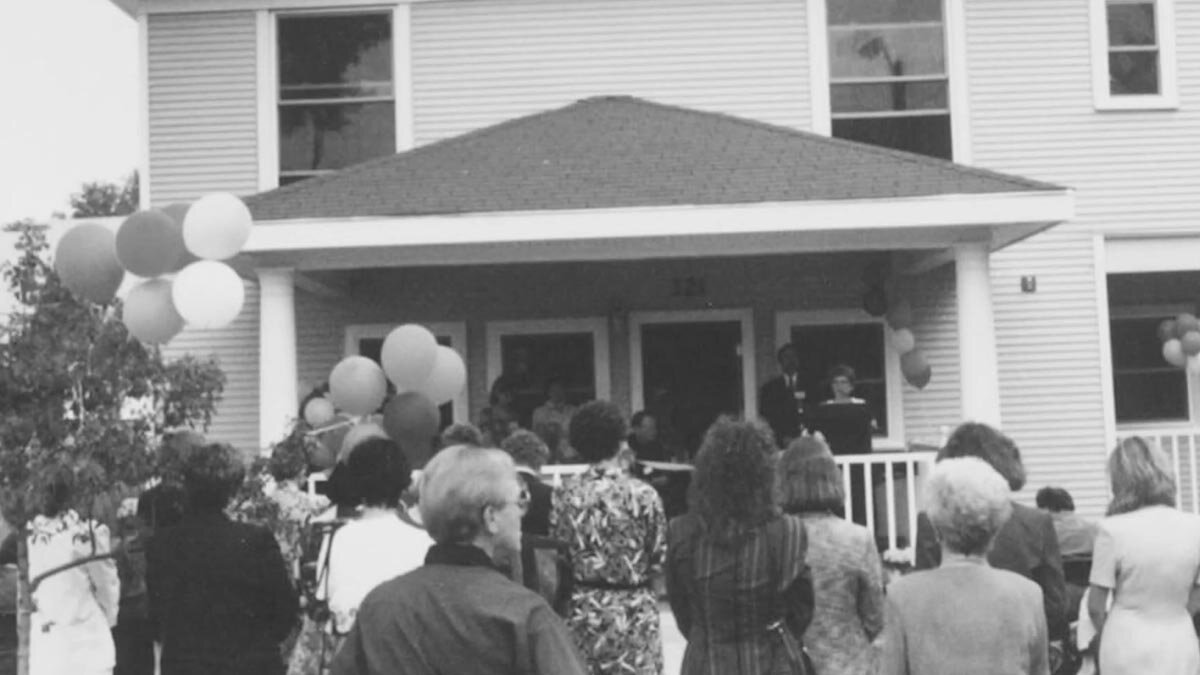
After 13 years as Greccio’s Executive Director, Rodgers retired in 2003. Lee Patke took the helm in 2010 as the third Executive Director, following Rich Strycker. The trio are good friends, and both former Directors remain ardent supporters of Greccio, Rodgers said.
Rodgers’ leadership in affordable housing is responsible for hundreds, if not thousands, of stable homes for families in the Pikes Peak region, said current Executive Director Patke.
“The focus on affordable housing for people with lower incomes is relatively new,” Patke said. “I consider Claudia a trailblazer. More than 30 years ago, she recognized the need and started this in motion.”
Housing affordability is defined as rent or mortgage plus utilities equaling no more than a third of household income, Patke said. Affordable housing units are those invested in by the city, state, or another resource, then set aside for households making incomes at 80% or less of the area median.
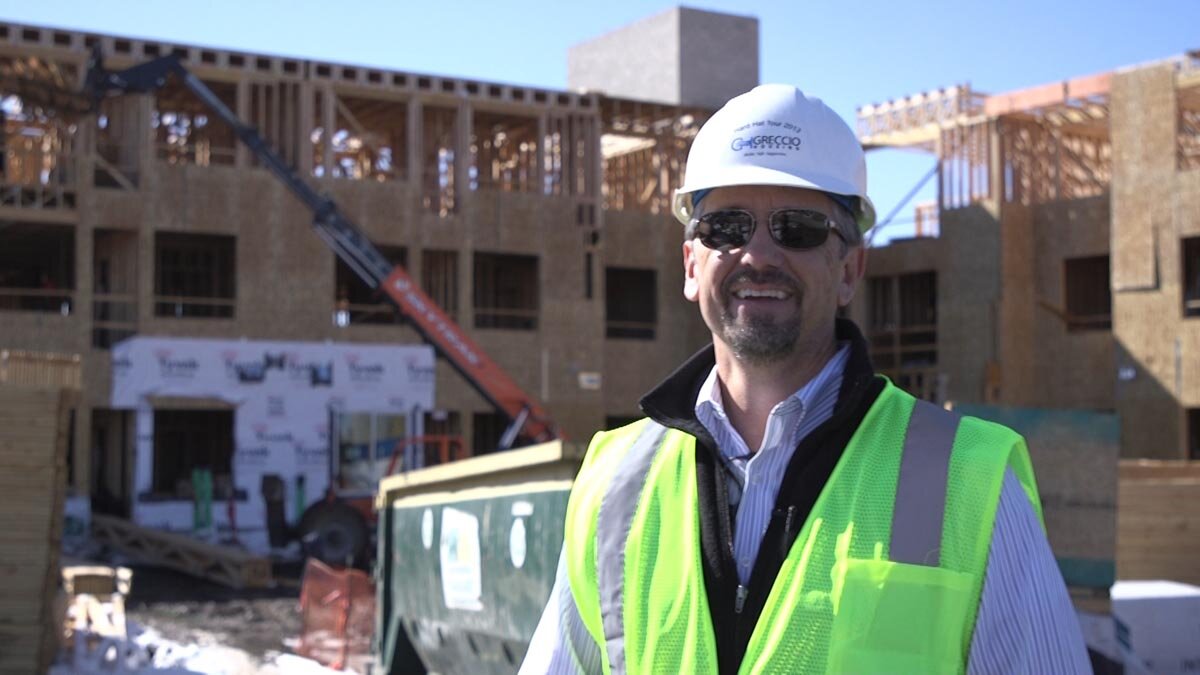
“That also includes people that are on fixed incomes, on social security — or who have no options,” Patke said.
This is where Rodgers found herself three years ago after her husband passed away. Her income was cut in half — and thus, her ability to meet expenses quickly dwindled.
“I couldn’t move, because of how rents in Colorado Springs were beginning to go up and up,” she said. “I applied for affordable housing at several places, and I was told it would be at least three years. I was shocked. I needed it then.”
Rodgers found herself in a similar position as many of the individuals she’d helped over the years.
“I worried about how long I could really afford to live,” she said.
Today, Rodgers is on a resident wait list for the Atrium at Austin Bluffs, Greccio’s newest affordable housing unit for low-income seniors under construction in northeast Colorado Springs.
“I’m just grateful that the organization has continued so marvelously over the last 30 years,” she said. “Greccio has been so true to its mission of setting people free.”
The Atrium, funded through low-income tax credits, includes 54 units for seniors and marks the first new build on a ground-up senior affordable housing unit for Greccio in many years, Patke said. Greccio applied for and won a tax credit award to bring the property to Colorado Springs. Construction on the Atrium began in August 2020 and is expected to be complete this year.
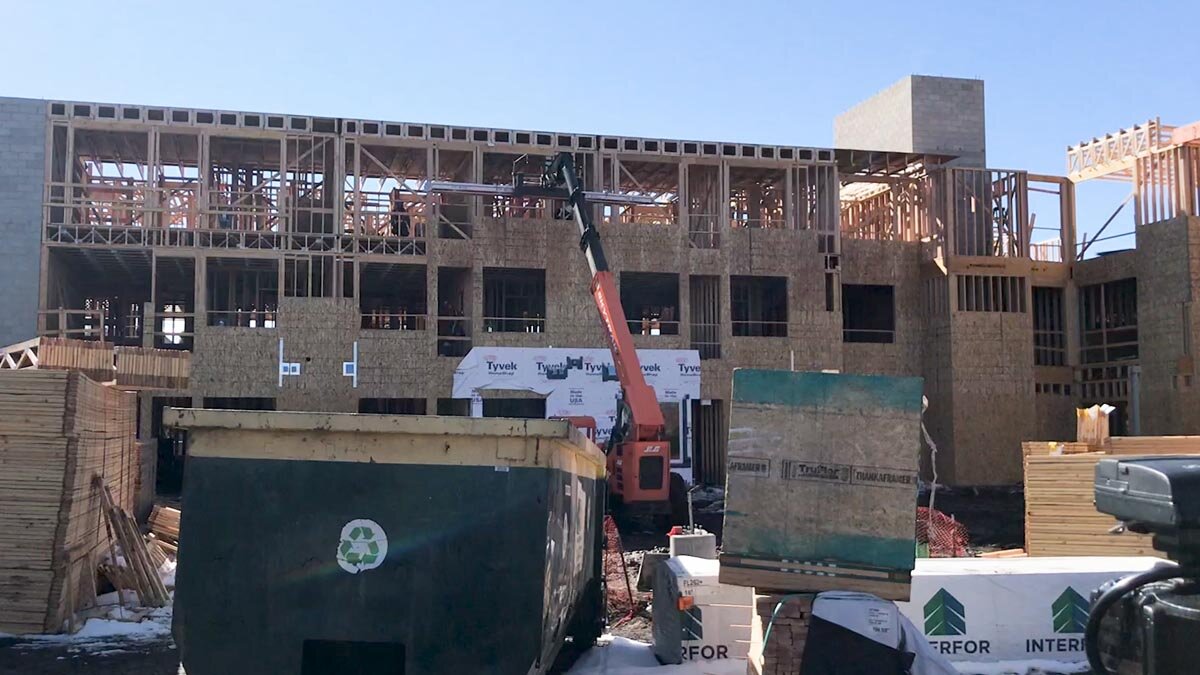
Low-income housing tax credits, a method of incentivizing for-profit businesses to invest in low-income housing in return for future tax credits, started under the Reagan administration in the 1980s.
Each year, Patke said, there are three times as many applications for low-income housing tax credit projects in Colorado Springs than there are funds available.
“This competition does help ensure quality bids and construction,” he said. “There’s nothing like bringing new, affordable units to the community.”
For individuals and families, housing stability “changes the entire dynamic of the rest of their lives,” Patke said.
“When people get back on their feet, it has a ripple effect for the children, the schools, and our community,” Rodgers agreed. “It all starts with the stability of housing.”
"The effects of affordable housing ultimately benefit all of us,” said Patke.
Between ownership and management, Greccio has 600 total units across 25 properties in Colorado Springs. Properties range from 130-year-old restored historic structures, to new construction, converted hotels, single-room occupancies, updated apartments built in the 60s and 70s, and more.
In addition to new builds, Greccio will soon be kicking off a 10 year, $3 million project to preserve existing units.
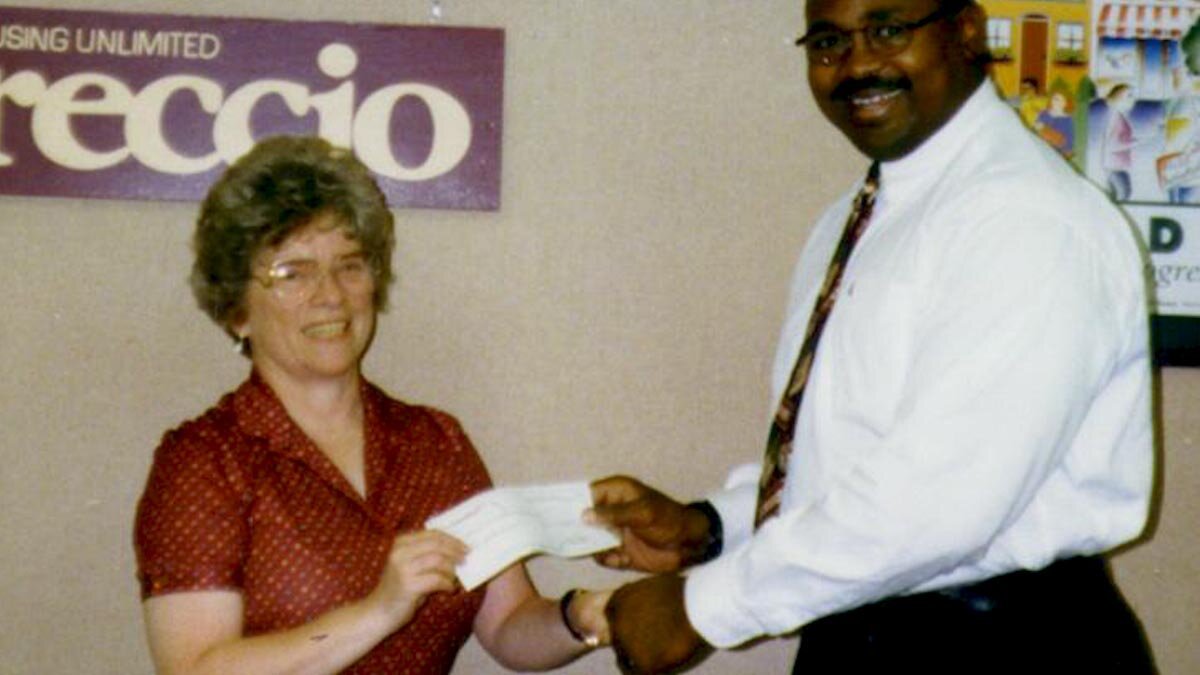
“Affordable housing is not what it used to be,” Patke said. “We’re changing the tune, along with a lot of others in the community.”
Modern amenities, style, and construction of affordable housing “are very reflective of the attitude, wants, and desires of the people who are going to live there,” Patke said.
At the Atrium, for example, each unit boasts a sunrise or sunset view. The complex has multiple common spaces, areas for socialization and activities, a wellness center, an exercise room, in-room washers and dryers, and resources for community and relationship building.
To plan the unit, the Greccio team interviewed seniors about what they thought was important in their living spaces, Patke said, and this feedback was incorporated into the build.
“I look forward to sharing, and a sense of community,” Rodgers said. “And I’m so thankful.”
Rodgers said she now knows firsthand the importance of having a safe place to age.
“Some of us can do that in our homes. Others of us are looking forward to aging in a community with others, where we are still independent and active,” she said.
“We all need an affordable place to live,” Patke said. “We want everyone to tune in and realize that it’s their own sons and daughters who need affordable homes and affordable rentals, just as much as our elders.”
A side effect of the pandemic, Patke said, has been a recognition that housing instability is real.
In a recent planning survey conducted by the City of Colorado Springs, only 65% of those interviewed reported they were “highly confident” they would be able to pay their rent or mortgage on time. 8% said they were “not at all confident.”
The latest housing analysis, Patke said, revealed Colorado Springs is over 2,000 units short of senior affordable housing.
“The Atrium at Austin Bluffs is a drop in the bucket — but every drop counts,” he said.
Meanwhile, the need continues to grow. And the solution, Patke said, is multi-faceted.
“We cannot build ourselves out of this shortage,” he said. “We’ve also got to look at zoning codes, shared living experiences, and wage growth. A lot of affordable housing problems are solved with good jobs and good wages. It has to be an ‘all of the above’ approach.”
Patke said leadership is beginning to understand that for a thriving economy, affordable housing is essential.
“For our business owners, for our tourism industry — we have to have housing for essential workers,” Patke said. “Our economy thrives and depends on it, and their families thrive and depend on those incomes.”
Barb Van Hoy, Policy Analyst for the City of Colorado Springs Community Development Division, said Greccio is “a lifeline” for those they serve.
“Greccio helps fill a critical gap in affordability for many local residents who would otherwise be unable to afford a decent place to live,” Van Hoy said.
Van Hoy and her department gather and deploy information on local needs, including educating the community on the priorities and progress of the City’s affordable housing programs during National Community Development week, April 5-9.
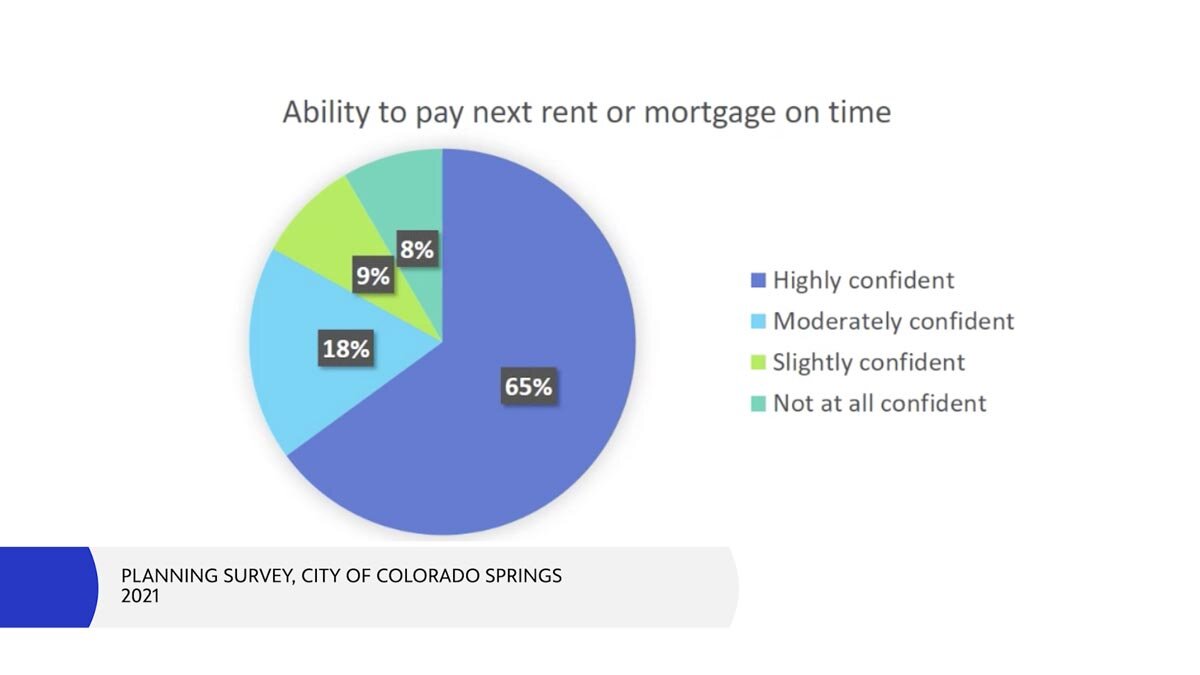
“National Community Development Week is an opportunity to raise awareness about the impact of specific U.S. Department of Housing and Urban Development grant programs that help local governments address poverty through community investment,” said Van Hoy. “We’ll show the community how we prioritize use of federal funds in Colorado Springs to increase and preserve the supply of affordable housing.”
This outreach is part of a campaign that showcases the importance of timely and equitable response to the affordable housing crises.
“The gap is widening between wages and housing costs, which threatens not only those who can't afford a home — but hurts our collective prosperity as well,” Van Hoy said.
“Families are in need, seniors are in need, persons who are homeless are in need — the whole spectrum of the population is somehow in need of affordable housing,” Rodgers said. “We’re all human beings, and we all have a right to a good, safe place, to live.”
Van Hoy said she hopes for local residents and elected leaders to gain an understanding of the causes that prevent many community members from housing and economic opportunities — as well as showing what strengthens neighborhoods and communities.
Rogers also hopes community members will take the time to get involved by serving on nonprofit boards.
“The skills, time, and support that people bring to local boards is so necessary,” Rodgers said. “The nonprofits are us — and it’s us working together. People can really support, with their knowledge and caring, what an organization is trying to do. I know that in Greccio’s history, without these volunteers, Greccio wouldn’t be.”
Patke said Greccio’s success today all goes back to Rodgers’ initial vision for the company.
“She may be only five feet tall, but she is a giant in our community,” Patke said.